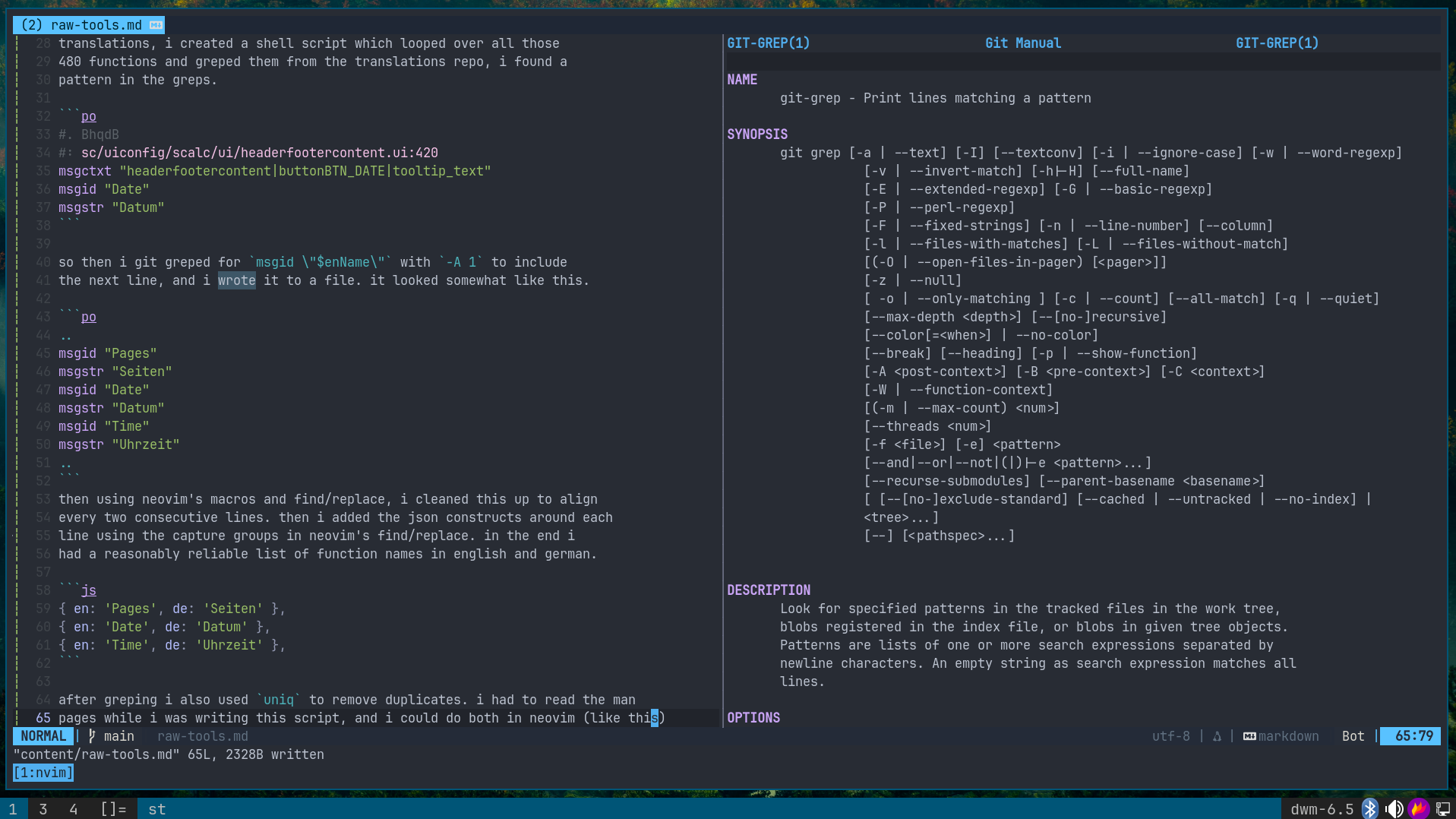




i still think clicky-cliks like vscode have a point, i recently setup
an opengl project and vscode made it possible for me to forget
about the build system and the debugger, and just focus on code. i
can clone the project on windows or linux, open it in vscode and the
extensions will be automatically installed, the workspace settings
will be applied.. see .vscode/.
but beyond that "cross platform, shared config, just code" usecase, clicky-cliks are pretty limited. i was assigned a task to add german translations of calc functions to online notebookbar. had i been a vscode only person, the only approaches i could have thought of would have been "do it manually for all 480 functions, one at a time", or "ask copilot/llm to do it for me".
the llm's output is quite unreliable, not something which you can just push (if you are responsible) and if i had to then verify each one, what's the point of using an allm in the first place.
i had a list of english functions which i previously got by printing them from a running libreoffice (as it loaded them). to get the german translations, i created a shell script which looped over all those 480 functions and greped them from the translations repo, i found a pattern in the greps.
#. BhqdB
#: sc/uiconfig/scalc/ui/headerfootercontent.ui:420
msgctxt "headerfootercontent|buttonBTN_DATE|tooltip_text"
msgid "Date"
msgstr "Datum"
so then i git greped for msgid \"$enName\" with -A 1 to include
the next line, and i wrote it to a file. it looked somewhat like this.
..
msgid "Pages"
msgstr "Seiten"
msgid "Date"
msgstr "Datum"
msgid "Time"
msgstr "Uhrzeit"
..
then using neovim's macros and find/replace, i cleaned this up to align every two consecutive lines. then i added the json constructs around each line using the capture groups in neovim's find/replace. in the end i had a reasonably reliable list of function names in english and german.
{ en: 'Pages', de: 'Seiten' },
{ en: 'Date', de: 'Datum' },
{ en: 'Time', de: 'Uhrzeit' },
after greping i also used uniq to remove duplicates. i had to read
the man pages while i was writing this script, and i could do both in
neovim (like this). this is why i think cli tools like neovim are far
superior to tools like vscode.

clicky-cliks are still needed as cli tools are sometimes not supported on all the platforms, neovim and it's clangd don't work that well with libreoffice on windows, half of the editor is filled with red error markers and goto-definitions are unreliable. so in those cases, a well configured vscode might work better. it's important to develop muscle memory with these raw tools so that whenever you find some non-trivial task, you can use them and save some time and frustration.